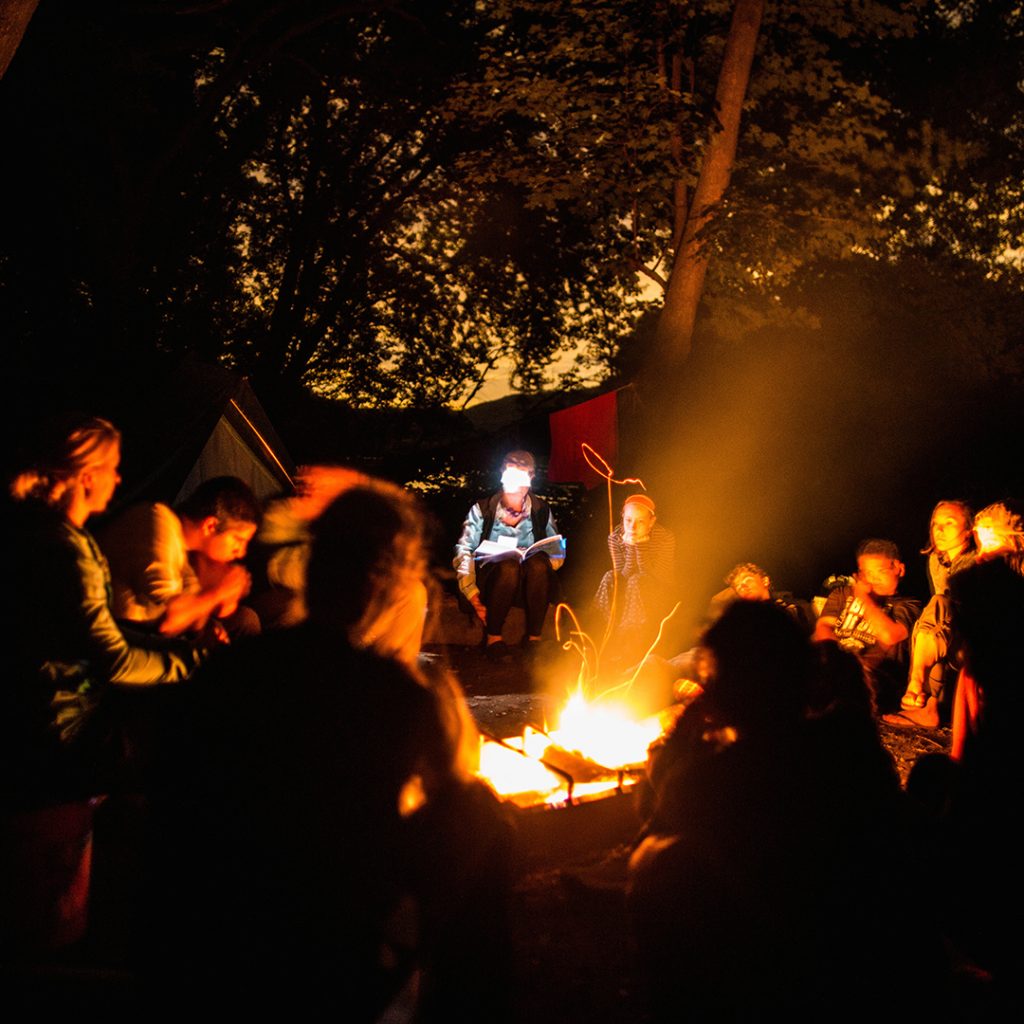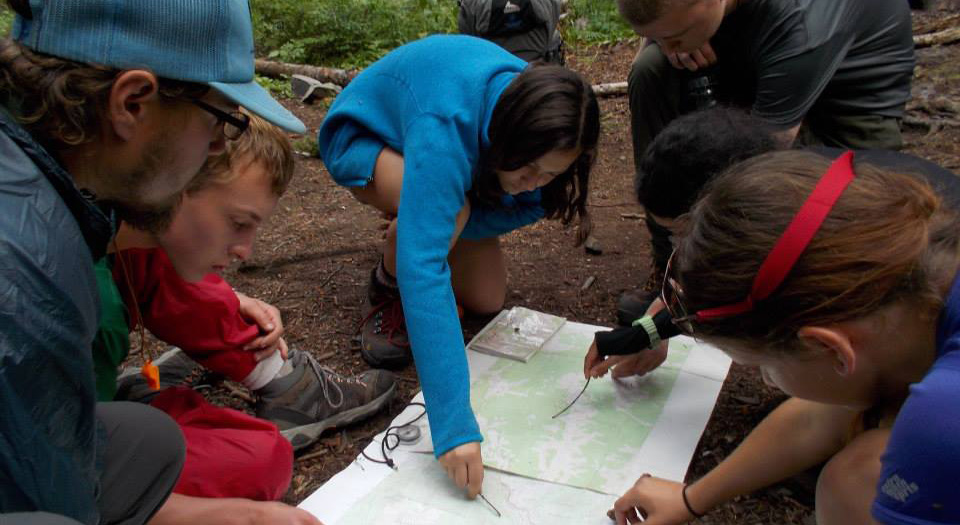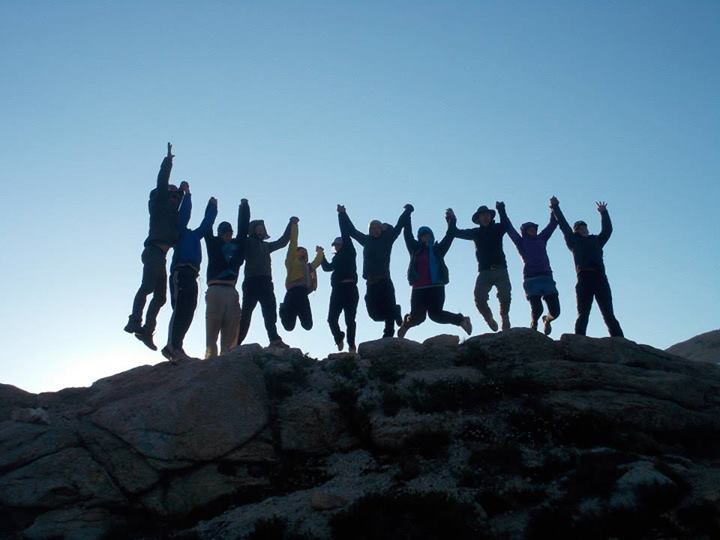“Hey! All you’ve done today is follow us around and say, ‘What do you think?’”
My students just realized that they had been hiking in the wrong direction for the last few hours, and they were pissed. It was mid-afternoon and there was no way that they would reach their intended campsite before dark. As their Instructors, we had been following them all day, just out of sight but never out of earshot. They quarreled for a few minutes before turning on us.
“Did you know we were going in the wrong direction?”
“Why didn’t you say anything?”
“You suck!”
“This sucks.”
Their disappointment had turned into anger, and finally resignation. They decided to turn around, camp near the deceptive turn-off and wake up earlier the next day to make up for lost time. That night at our evening meeting, the students talked through what had led to their poor decision-making and what they could do differently moving forward. They came up with solutions like listening to each member of the crew equally—one of the quieter students had been right and ignored at a crucial moment—and double-checking the map at every intersecting trail. The student who told me I sucked, apologized. They decided on an early wake-up time for the next morning. A chance at a fresh start.

Outward Bound students contemplate what went wrong, and right, on a long day out on the trail.
When I met these eight teenagers two weeks prior, they had all been backpacking and camping novices. My co-Instructor and I had taught them all of the basics of camp craft and group living, working alongside them as they perfected packing, backcountry cooking and building weatherproof structures with a tarp. We had taught them how to navigate with a map and compass, impressing upon them that the best way to not get lost is to stay found. We helped them create a culture of openness and compassion. We gave lessons in conflict resolution and discussed the importance of good leadership and communication skills.
As parents and teachers know, you can tell someone the ways of the world until you’re blue in the face, but it’s not until they experience it for themselves that the shape of the thing really clicks. And failure is a better Instructor than I will ever be.
At Outward Bound, the Doug Mahon, Catcher in the Rye Award is for a field staff member who “best exemplifies the absolute safety of those entrusted to Outward Bound, the highest quality of experiential education to be provided to them, and the provision of character-building experiences that will enable them to grow to their maximum potential.” It’s based on this quote from J. D. Salinger’s novel of the same name:
“Anyway, I keep picturing all these little kids playing some game in this big field of rye and all. Thousands of little kids, and nobody’s around – nobody big, I mean – except me. And I’m standing on the edge of some crazy cliff. What I have to do, I have to catch everybody if they start to go over the cliff – I mean if they’re running and they don’t look where they’re going I have to come out from somewhere and catch them. That’s all I do all day. I’d just be the catcher in the rye and all. I know it’s crazy, but that’s the only thing I’d really like to be.”
As an Instructor, this is my job. I create the boundaries of play to keep my students physically and emotionally safe. The longer they are on a course, the more responsibility they earn and the larger the field becomes. Every course, regardless of length, includes a progression of skills and responsibility. Those students whom I had followed for many miles in the wrong direction were on Finals. They had completed Training—learning all the skills we could teach them to survive and thrive in the backcountry—and Main Phase, during which they had begun to take over daily decisions, still with close supervision and correction by their Instructors.
In Finals, staff finally become those catchers in the rye. We keep our students from running over the cliff (both metaphorical and literal) but we no longer interfere in the game. A Finals section is never a foregone conclusion—it’s earned. Every member of the group must prove they can be trusted to do it right, or fail well.

Students are shown taking the navigation lead and planning their route for the day.
I find longer courses are the most amenable to this process. They give students more time to earn their Finals section and have the space built in for those incredibly inconvenient learning opportunities. Students experience immediate, tangible consequences for their failures and the opportunity to debrief and reflect on them. Older students in particular benefit from this environment. Teenagers entering adulthood are given the opportunity to fail in meaningful ways without dire consequences, with the support of their crew and experienced Instructors.
I asked one of my students for her thoughts on her course a few months later and this is what she had to say: “I feel like most of my personal growth took place in the last week of my trip, when we took charge and led our own course. My outdoor skills solidified, my leadership abilities blossomed, and my team was able to work together in amazing ways.”
As an Instructor, I am honestly indifferent to whether my students will be able to read a map or set up a safe backcountry kitchen when they return home. I do care that they have learned compassion, better communication skills and a greater awareness of those around them. Living and striving in a group in the mountains can be intense and naturally breeds conflict, but without conflict they’ll never learn resolution. Long Outward Bound courses allow for just that.

About the Author
Ella Hartley has worked for the Colorado Outward Bound School (COBS) since 2014 as an Intern, Logistics Coordinator, Instructor and General Minion. Leadville, Colorado is homebase for a life spent playing in the surrounding Rockies, traveling and hiking obnoxiously long trails. Case in point: last winter Ella hiked the length of New Zealand in order to raise money for the COBS Gruffie Scholarship Fund for young women… and because 1,800 miles of beaches, mountains, farms and mud sounded like fun.




